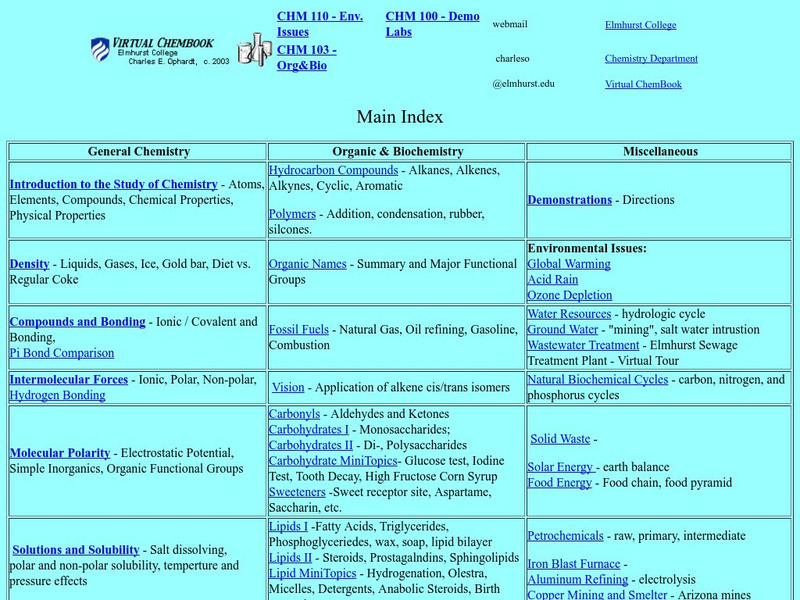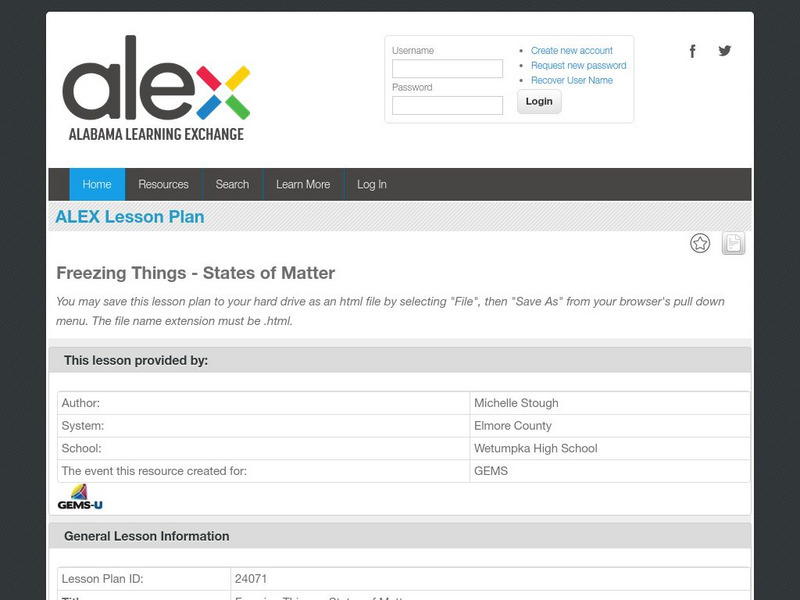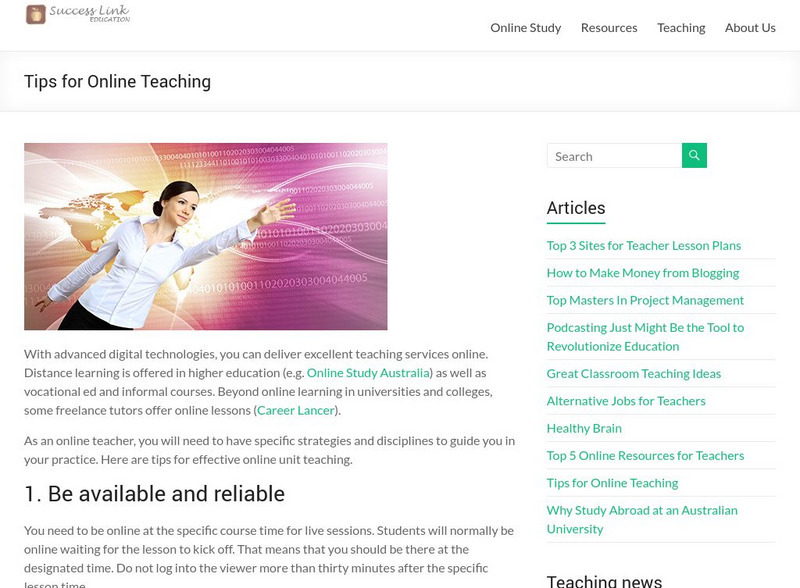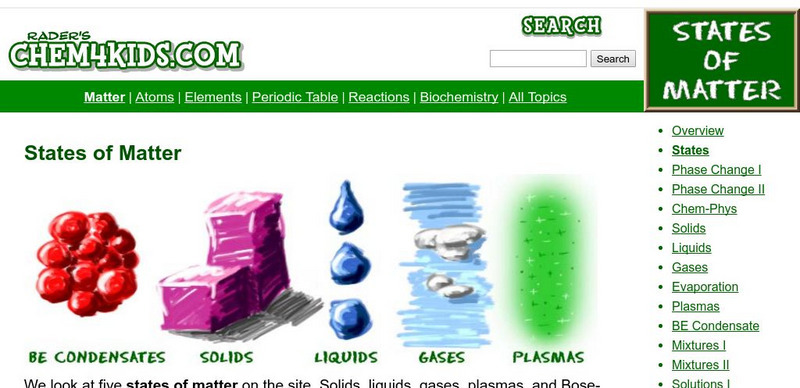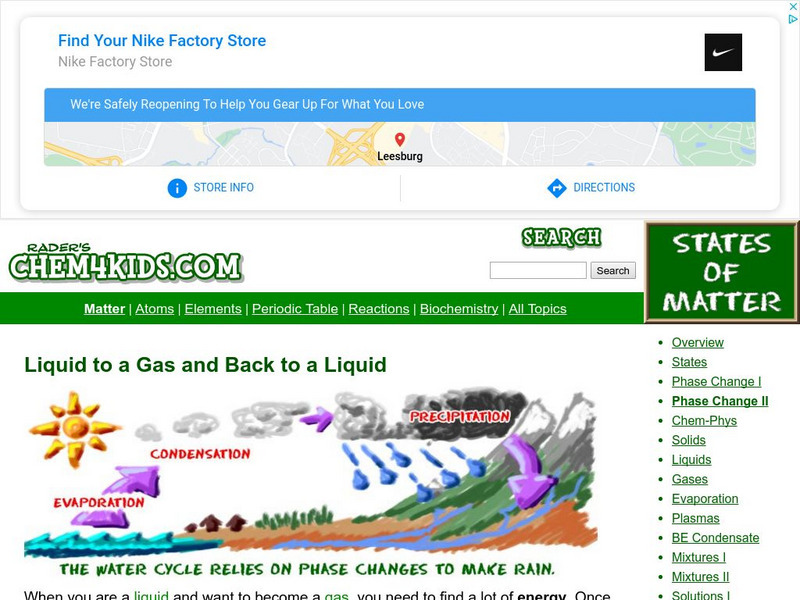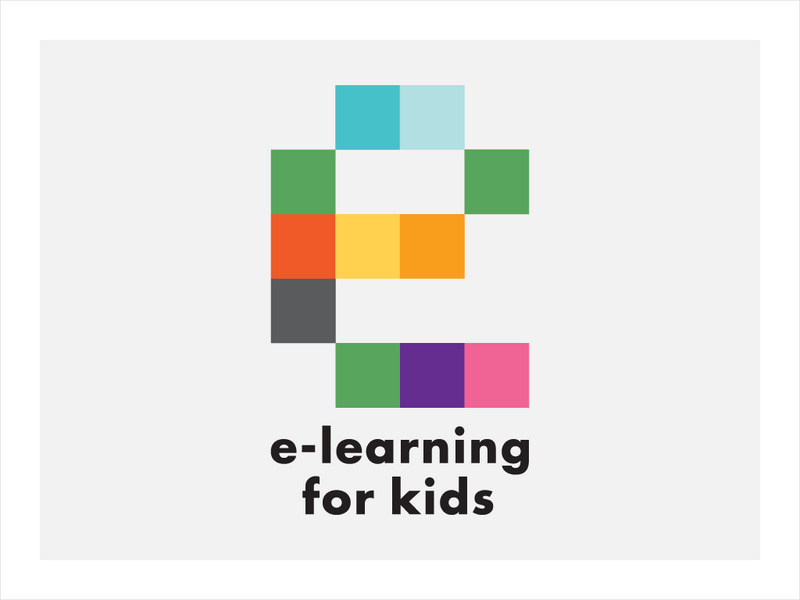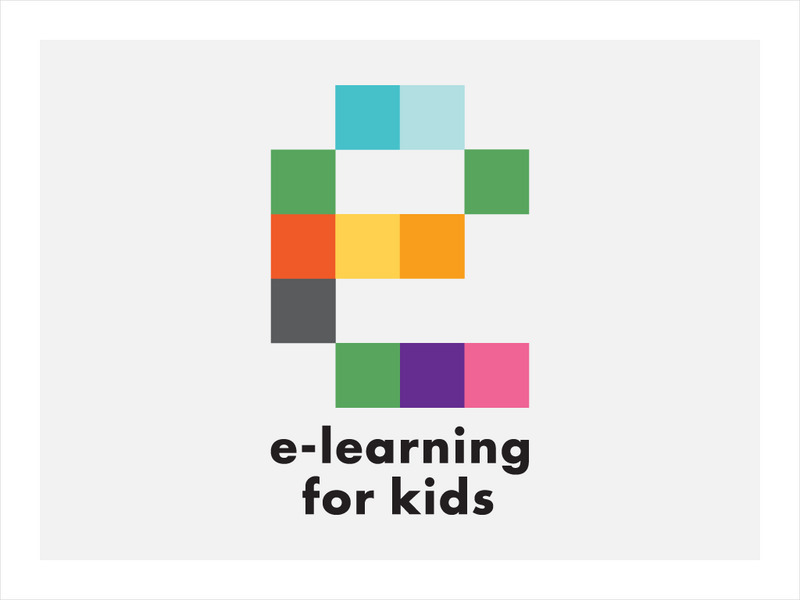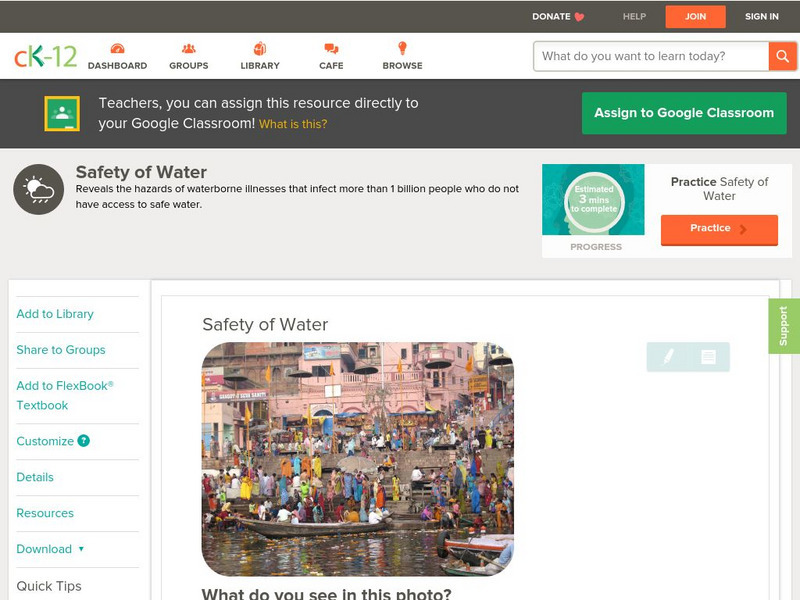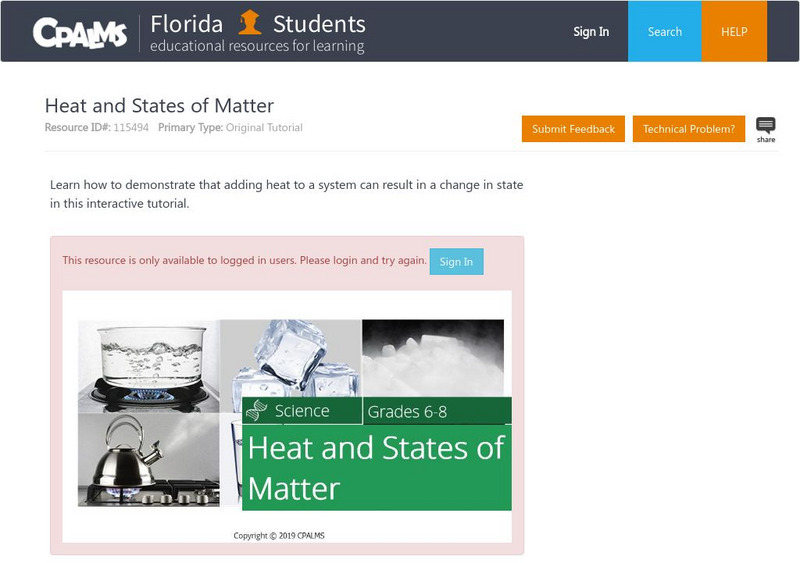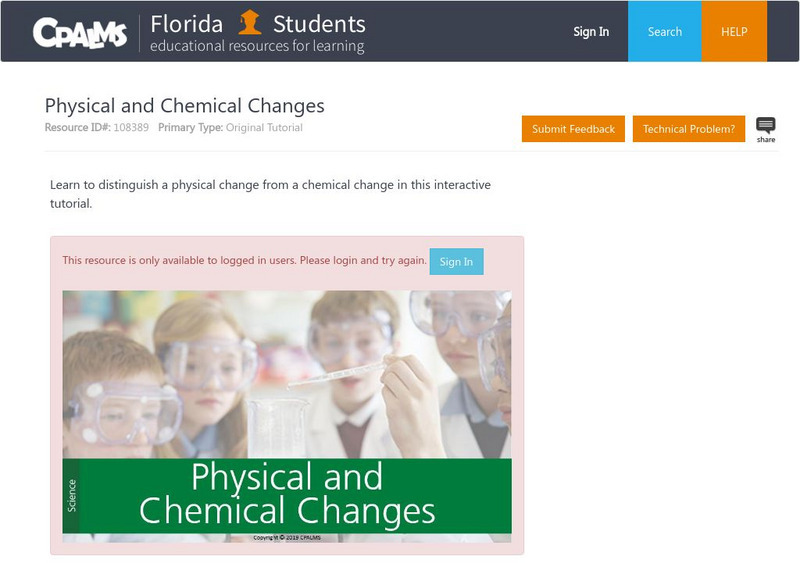Other
Elmhurst College: Virtual Chembook: What Are Physical Properties and Changes?
Brief descriptions of physical properties, physical changes, and the process of sublimation. The three states of matter, melting point, and boiling point are described. There is one link on the page, which leads to an explanation of...
Alabama Learning Exchange
Alex: Freezing Things: States of Matter
The class will go back over the Power Point presentation on chemical and physical properties. The teacher will then conduct numerous liquid nitrogen demos. This instructional activity is used early in the Chemistry course. The students...
Success Link
Success Link: Dry Ice Lab/demonstration How Cool It Is!
A lesson plan using dry ice to show the four states of matter. Included are inquiry-based questions to use as part of the demonstration.
Center of Science and Industry
Cosi Columbus: Can You Stand the Pressure
Science experiment that demonstrates the four states or phases of matter: solid, liquid, gas, and plasma. Includes full list of materials, procedures, and scientific explanation of how you change water from a liquid state to a gaseous...
Concord Consortium
Concord Consortium: Molecular Workbench: States of Matter
Change variables in this simulation to see how compression affects different states of matter.
University Corporation for Atmospheric Research
Ucar: Just a Phase: Water as a Solid, Liquid, and Gas
This site helps students construct a model of the arrangement of water molecules when present as solid, liquid or gas. Includes background information, lesson plans, links to standards and assessment ideas.
Channel 4 Learning
4 L: Science Essentials: Material World
Learn about topics related to the material world. Each topic includes facts, a glossary, an interactive quiz, printable worksheets, an image bank, and web links.
Other
Science4us: States of Matter
In the States of Matter module, students further explore the concept that anything on earth that has mass and takes up space is matter. This exercise introduces students to solids, liquids and gases, the three most common states of...
Chem4kids
Chem4 Kids: States of Matter
This resource explains the five states of matter and methods of changing from one state to another.
Chem4kids
Chem4 Kids: Liquid to Gas and Back to Liquid
This resource discusses ways liquids can change into gases and vice versa.
Chem4kids
Chem4 Kids: Chemical vs. Physical Changes
Identify chemical and physical changes and the differences between the two.
E-learning for Kids
E Learning for Kids: Norway Fjords: What Are Solids, Liquids and Gases?
The differences between solids, liquids, and gases and the properties of each are presented in this lesson.
E-learning for Kids
E Learning for Kids: Science: Netherlands: What Are Permanent and Temporary Changes?
In this lesson, students match a substance with its state of matter, identify what state something is, and learn about temporary and permanent changes in matter.
E-learning for Kids
E Learning for Kids: Science: Loch Ness: What Happens When Solids and Liquids Are Heated or Cooled?
Students will look at what happens to different types of matter when they have a change of state.
CK-12 Foundation
Ck 12: Earth Science: Safety of Water
[Free Registration/Login may be required to access all resource tools.] How some people do not have access to safe water for drinking and bathing.
CK-12 Foundation
Ck 12: Earth Science: Safety of Water
[Free Registration/Login may be required to access all resource tools.] How some people do not have access to safe water for drinking and bathing.
CK-12 Foundation
Ck 12: Earth Science: Seawater Chemistry
[Free Registration/Login may be required to access all resource tools.] Describes the composition of seawater, including dissolved ions in seawater and their source.
Other
Howto smile.org: From Gas to Liquid to Solid
Allow your students to explore states of matter as they learn what causes frost to form on the outside of a cold container. Students will observe how liquid water can change to ice or water vapor in this lab. Lesson includes background...
Center for Literacy and Disability Studies, University of North Carolina at Chapel Hill
Tar Heel Reader: Liquids: A Science Curriculum Resource Support
Read about solids, liquids, and gases, and find out about the phases of matter.
Center for Literacy and Disability Studies, University of North Carolina at Chapel Hill
Tar Heel Reader: Three Kinds of Matter: Solids, Liquids, and Gases
Find out about the three states of matter: solids, liquids, and gases.
Center for Literacy and Disability Studies, University of North Carolina at Chapel Hill
Tar Heel Reader: Forms of Water
Find out how water can exist in the three different pahses of matter.
CPALMS
Florida State University Cpalms: Florida Students: Heat and States of Matter
Learn how states of matter can change as heat is added to a system.
CPALMS
Florida State University Cpalms: Florida Students: Your Ice Cream Is Moving
Learn how states of matter are dependent on an object's average kinetic energy.
CPALMS
Florida State University Cpalms: Florida Students: Physical and Chemical Changes
Explore the differences between chemical and physical changes, including some examples at the atomic level.
